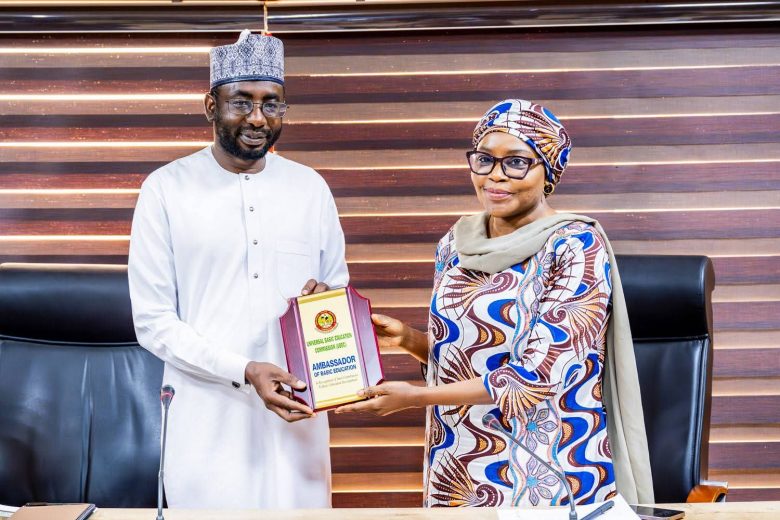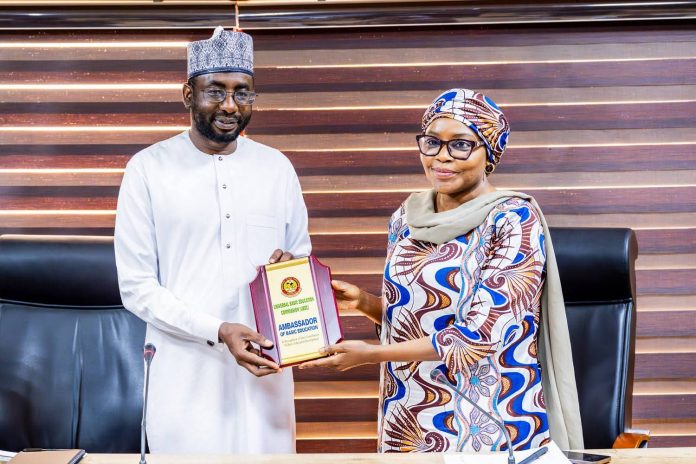In a significant move to enhance digital literacy across Nigeria, the Director General of the National Information Technology Development Agency (NITDA), Kashifu Inuwa, has reaffirmed the Federal Government’s commitment to achieving 95% digital literacy nationwide by the year 2030. This ambitious initiative includes a target of reaching 70% digital literacy by 2027.
This announcement was made during a collaborative meeting hosted by the Universal Basic Education Commission (UBEC) and aligns with the current administration’s focus on economic reform, inclusive growth, and diversification through industrialisation, digitisation, creative arts, manufacturing, and innovation.
“We started this journey in 2023 when President Bola Ahmed Tinubu took office, emphasising economic diversification and inclusivity as pivotal aspects of our agenda,” Inuwa stated. He elaborated that the President outlined eight priority areas to achieve this vision, with the seventh specifically dedicated to accelerating industrialisation and digitisation.
Understanding that digital fluency is crucial to this agenda, Inuwa highlighted NITDA’s commitment to empowering citizens digitally through the development of the National Digital Literacy Framework (NDLF), a strategic blueprint designed in accordance with international best practices. The framework encompasses six core competency areas: device and software operations, information and data literacy, communication and collaboration, content creation, safety, and problem solving.

“From primary school pupils to working professionals, we aim to make digital skills accessible at all levels of fluency—basic, intermediate, and advanced,” Inuwa explained. Despite challenges in data collection, NITDA estimates that Nigeria’s digital literacy rate currently stands at approximately 50%, up from 44% in 2021, according to extrapolated data from the World Bank’s Better Life Report.
He noted that NITDA is collaborating closely with the Nigerian Educational Research and Development Council (NERDC) to integrate digital literacy into formal education. This initiative forms part of NITDA’s ongoing engagements with key educational stakeholders, including the Federal Ministry of Education and the National Universities Commission (NUC).
In further efforts to bolster digital education, NITDA is partnering with global platforms like Coursera to train teachers using AI-powered lesson generation tools, facilitating scalable online training. Previous partnerships, such as the one with Nasarawa State University in collaboration with CISCO, have also been established to enhance digital literacy in tertiary institutions.
Emphasising the need for a collective effort, Inuwa stated, “This is not a journey we can walk alone; we must bring everyone on board—education stakeholders, technology providers, state governments, and international partners.”
Responding to Inuwa’s remarks, UBEC Executive Secretary Hajiya Aisha Garba confirmed that the Commission has received the digital literacy curriculum developed by NITDA and NERDC and has initiated an internal review process. While she acknowledged the curriculum as robust, she emphasised the necessity for simplification to accommodate early learners and teachers, citing challenges such as curriculum overload and insufficient infrastructure.
Garba assured that UBEC, in partnership with the State Universal Basic Education Board (SUBEB), will take the lead in equipping schools with computers and solar-powered infrastructure to support genuine learning efforts. “We’re committed to refining the curriculum, training teachers, and ensuring effective implementation,” she concluded.
To formalise these efforts, a joint inter-agency committee has been established to develop strategic plans for the effective rollout of the digital literacy initiative, equipping young Nigerians with essential digital skills necessary for success in a rapidly evolving technological landscape.


